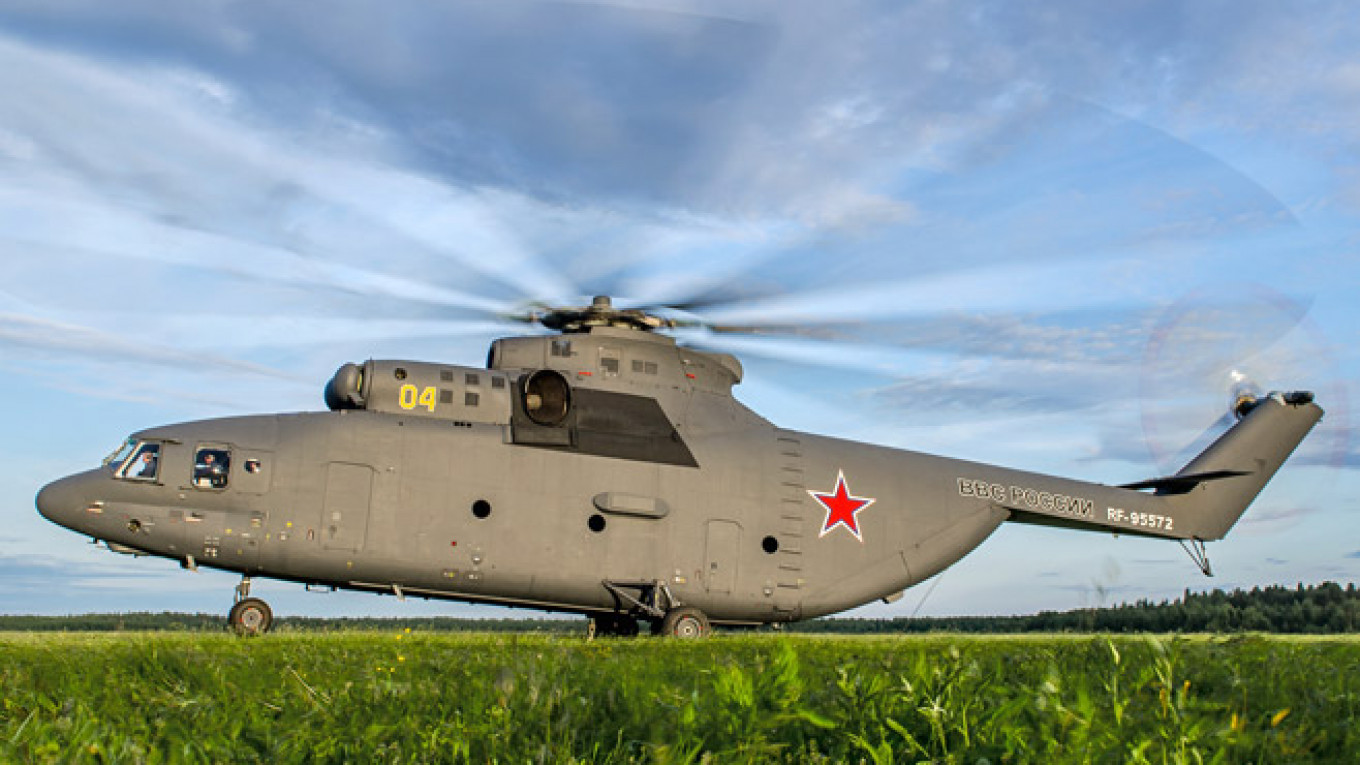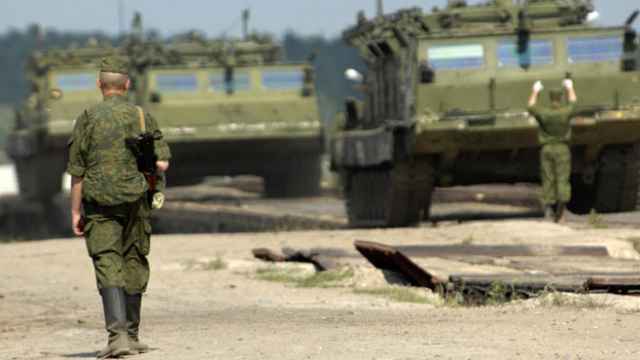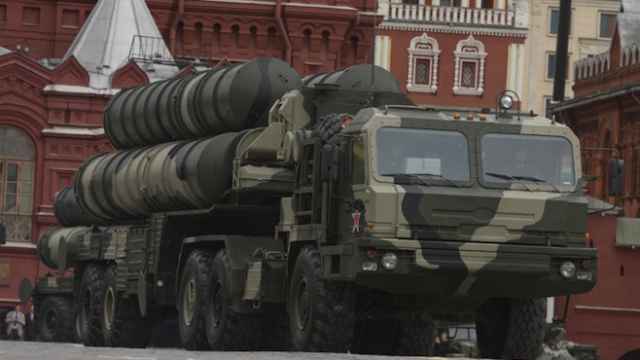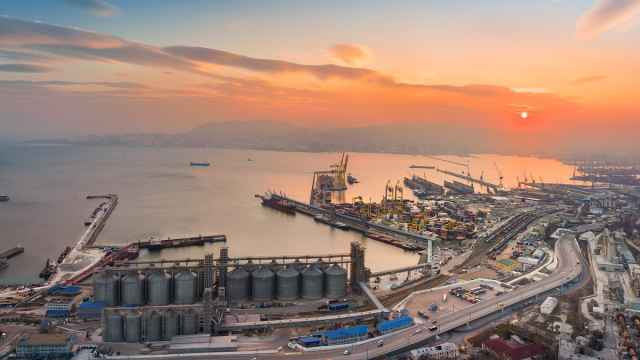Amid an imminent helicopter deal and talk of a Chinese-Russian space station, relations between Moscow and Beijing are warming even as Russia's ties with the West fray over the Ukraine crisis.
Visiting Hangzhou on Tuesday, Russian Deputy Prime Minister Dmitry Rogozin said plans to jointly develop a dual use civilian-military helicopter with China would be finalized in May and that Russia and China were exploring working together to create a lunar base.
The diplomacy is the latest instance of Russia opening up its military and aerospace expertise to China, a country is has distrusted since the two communist allies became rivals in the 1960s.
China in April became the first country to be allowed to purchase Russia's advanced S-400 air defense system, one of the world's most powerful, while in March Russia's state-controlled United Aircraft Corporation said a jointly developed wide-body passenger plane should be ready by 2021.
"Russia and China are now becoming, as we wanted, not only neighbors but deeply integrated countries," Rogozin said, according to the website of the Russian government's Military-Industrial Commission.
The deeper defense cooperation comes as Western sanctions on Russia over its role in the Ukraine crisis jumpstart long-discussed plans in Moscow to boost ties with Beijing. After nearly a decade of negotiations, Russia in May last year announced a 30-year, multibillion-dollar gas deal with China, followed later by a raft of trade deals.
Despite the optics, growing cooperation is about more than just Ukraine, said Ben Moores, an analyst at defense consultancy IHS Jane's.
"This is a long-considered policy. Russia wants to leverage its technical expertise into emerging Chinese programs which have lots of funding," Moores said in e-mailed comments.
The Moscow Times looked at four of Russia's top technology projects with China:
Modernized Mi-26 Helicopter
In June Rogozin, who oversees Russia's defense industry, announced that Russia and China were in talks to jointly modernize Russia's Mi-26 Soviet-era helicopter.
The new helicopter would be a lighter version of the heavy-transport helicopter but would be able to carry the same 15-ton load, Rogozin said, news agency RIA Novosti reported.
On Tuesday Rogozin said the final decision on the helicopter would be signed in May. The final product would be mostly used by China, but could find its way into Russia's air fleet.
"We view this more as a commercial project, because we have our own Mi-26 helicopter, nevertheless … [the helicopter may be] used in the Russian Federation," Rogozin said, RIA reported.
Russia-China Moon Base
Rogozin said in China that the two sides had actively discussed creating a lunar research decision, as well as cooperation between Russia's GLONASS navigation system, a GPS analogue, and China's own homegrown version, called BeiDou, Russian news agency TASS reported.
"We are discussing … [China's] involvement as a founding partner in creating a lunar-research station," TASS quoted Rogozin as saying.
A lunar exploration plan drawn up by Russia's Roscosmos space agency was leaked to TASS in December. It called for 12.5 trillion ruble ($242 billion) in spending through 2050, though it is unclear whether the government will commit to fully fund the plan amid a sharp economic downturn.
Former Roscosmos head Oleg Ostapenko said in November that in addition to the mooted lunar base, China was also keen to begin producing Russian space rockets on its own territory, news agency RIA Novosti reported.
S-400 Missile System
Russia in April allowed China to become the first foreign country to purchase its advanced S-400 anti-aircraft missile system in a landmark deal that saw Moscow overcome fears that Beijing would simply copy the technology for a domestic analogue.
The deal was announced in April by Anatoly Isaikin, head of Russia's Rosoboronexport state defense export company, who said China would get four to six S-400 systems for a total of around $3 billion.
The S-400 can engage multiple airborne targets at a range of 400 kilometers. China will likely receive them in 2017, industry news agency Defense News said, citing China arms expert Vassily Kashin.
Defense industry publication IHS Jane's reported in April that Russia had held off on selling the high-tech weaponry to China over concerns that it would simply replicate it.
Passenger Plane '2020'
Russia's United Aircraft Corporation (UAC), a huge state-owned airplane manufacturer, announced last year that it planned to build a long-haul, wide-bodied airliner with Commercial Aircraft Corporation of China, or COMAC.
In late March, UAC chief Yury Slyusar told newspaper Vedomosti that the plane would enter serial production by 2025 and hold between 250 and 280 passengers. He estimated the project's cost at $13 billion. Officials have said they expect the bulk of the investment to come from China.
IHS Jane's Moores said the airliner was unlikely to appear: "I could see an R&D [research and development] program developing and then falling apart," he said.
"The problem for the Russians is that the Chinese need engines and avionics, both of which they can easily get from the leading suppliers in Western Europe and North America."
Contact the author at [email protected]
A Message from The Moscow Times:
Dear readers,
We are facing unprecedented challenges. Russia's Prosecutor General's Office has designated The Moscow Times as an "undesirable" organization, criminalizing our work and putting our staff at risk of prosecution. This follows our earlier unjust labeling as a "foreign agent."
These actions are direct attempts to silence independent journalism in Russia. The authorities claim our work "discredits the decisions of the Russian leadership." We see things differently: we strive to provide accurate, unbiased reporting on Russia.
We, the journalists of The Moscow Times, refuse to be silenced. But to continue our work, we need your help.
Your support, no matter how small, makes a world of difference. If you can, please support us monthly starting from just $2. It's quick to set up, and every contribution makes a significant impact.
By supporting The Moscow Times, you're defending open, independent journalism in the face of repression. Thank you for standing with us.
Remind me later.






